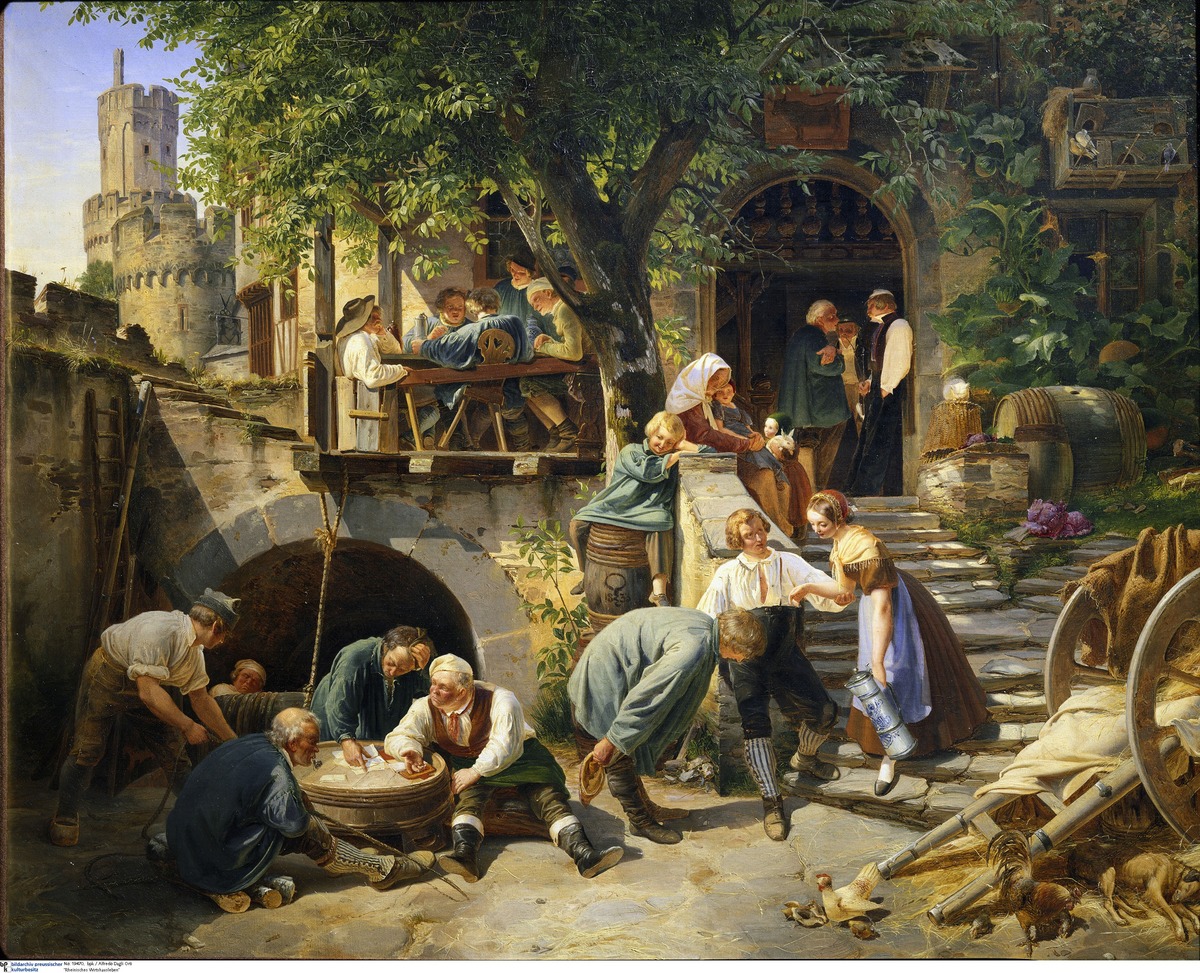Abstract
Particularly in the countryside, where people lived farther apart, inns played an essential role as centers for sociability and the exchange of ideas, sites for business transactions, and venues for courtship. Here, young and old, men, women, and children have gathered against the backdrop of a town wall, which allows the location to be identified as Oberwesel, a small town on the Rhine about 25 miles upstream from Koblenz. The Rhineland was and continues to be a wine-growing region, a fact that shapes both the local economic and social life in that region of Germany. Although painter Adolf Schrödter included several references to wine in his canvas (e.g., the wooden casks and the wine jugs), he did not indulge in rendering the kind of idyllic Rhenish lifestyle, replete with wine and merriment, that typically appeared in contemporary works by fellow painters. (Wolfgang Hütt, Die Düsseldorfer Malerschule 1819–1869. Leipzig, 1995, p. 100). Oil on canvas by Adolf Schrödter (1805–1875), 1833.
